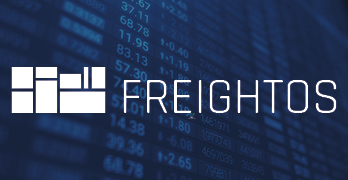FBX Index October: Market Summary

The Freightos Baltic Global index was stable month over month, dipping just 1% to $10,830/FEU, 385% higher than a year ago and more than 7X the pre-pandemic norm.
Increasingly congested ports that continue to sap capacity and cause delays, helped keep rates largely unchanged on the major trade lanes. This is despite manufacturing supply constraints caused by power shortages in some regions of China and signs of some let up in underlying holiday-driven transpac demand as the shopping season rapidly approaches.
Transpacific rates decreased to start the month, likely due to the Golden Week lull, but Asia-US West Coast rates ended about level with the end of September, up 2% to $19,478/FEU and Asia-US East Coast prices decreased 5% to $21,111/FEU.
Transpacific rates decreased to start the month, likely due to the Golden Week lull, but Asia-US West Coast rates ended about level with the end of September, up 2% to $19,478/FEU and Asia-US East Coast prices decreased 5% to $21,111/FEU.
However, both lanes closed the month 5% lower than the mid-September peak. There are also reports that, for the first time since June, some shipments can be booked as little as one week in advance and without paying a premium. Taken together, these trends suggest that – with delays making late month orders unlikely to arrive in time for the holidays – transpac demand is letting up from the peak season surge, at least a little.
Asia-North Europe prices decreased slightly, 3% to $14,259/FEU, while Asia-Mediterranean rates increased 1% to $13,298/FEU, both more than 5X a year ago.
Though Asia-Europe volumes are not nearly as elevated as on the transpacific, disrupted schedules, congested ports and clogged inland transport have kept delays a reality and rates up on this lane as well, though they’ve been relatively stable since August. Asia-North Europe prices decreased slightly, 3% to $14,259/FEU, while Asia-Mediterranean rates increased 1% to $13,298/FEU, both more than 5X a year ago.
With the ports of LA/Long Beach still dealing with record queues of anchored ships, congested EU ports, scarce yard space and overwhelmed inland logistics, any significant improvement is unlikely any time soon. And with US retail inventories still at near record lows, delays and elevated rates are expected to persist well into 2022.
About Judah Levine, Research Lead, Freightos
Judah is an experienced market research manager, using data-driven analytics to deliver market-based insights. Judah produces the Freightos Group's FBX Weekly Freight Update and other research on what's happening in the industry from shipper behaviors to the latest in logistics technology and digitization.
Receive monthly container market reports direct to your inbox.